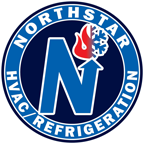What to Expect from HVAC Industry Regulations in 2025
Written by Ed Rice
The HVAC industry is undergoing significant regulatory changes as governments and industry leaders push for greater energy efficiency, reduced environmental impact, and improved system performance. As we move into 2025, new regulations will impact equipment manufacturers, contractors, and building owners, shaping the way HVAC systems are designed, installed, and maintained.
Understanding these upcoming changes is crucial for businesses that rely on HVAC systems to ensure compliance, avoid penalties, and take advantage of potential cost-saving opportunities. In this blog post, we’ll explore the key HVAC industry regulations coming in 2025 and how they may affect your business.
1. Stricter Energy Efficiency Standards
The U.S. Department of Energy (DOE) continues to push for higher efficiency standards in commercial and residential HVAC equipment. In 2025, expect updates to SEER2 (Seasonal Energy Efficiency Ratio), HSPF2 (Heating Seasonal Performance Factor), and AFUE (Annual Fuel Utilization Efficiency) ratings that will require HVAC systems to meet higher minimum efficiency requirements.
What This Means for You:
Older, lower-efficiency HVAC systems may no longer meet compliance standards, making it necessary to upgrade to more efficient models.
Newer HVAC units will likely have higher upfront costs but will offer long-term energy savings and lower operating expenses.
Contractors and facility managers should stay informed about rebate programs and incentives for energy-efficient upgrades to offset costs.
2. New Refrigerant Regulations: The Shift to A2L Refrigerants
The American Innovation and Manufacturing (AIM) Act, which aims to phase down hydrofluorocarbons (HFCs), continues to drive changes in refrigerant regulations. By 2025, many HVAC systems will transition to A2L refrigerants, which have lower Global Warming Potential (GWP) compared to traditional refrigerants like R-410A.
What This Means for You:
R-410A and other high-GWP refrigerants will be phased out, requiring businesses to transition to lower-GWP refrigerants such as R-32 and R-454B.
HVAC contractors must be trained in handling mildly flammable A2L refrigerants, as they have different safety and installation requirements.
Businesses may need to upgrade HVAC equipment to be compatible with A2L refrigerants if retrofitting is not an option.
3. Building Decarbonization and Electrification Policies
Cities and states are enacting policies to reduce carbon emissions and phase out fossil fuel-based heating systems. In areas like Massachusetts, Building Emissions Reduction and Disclosure Ordinance (BERDO 2.0) regulations will require commercial buildings to meet strict carbon reduction targets.
What This Means for You:
Gas-fired HVAC systems may be subject to restrictions or replacement mandates, pushing businesses toward electric heat pumps and VRF (Variable Refrigerant Flow) systems.
Facility owners must track energy usage and carbon emissions to comply with local laws and avoid fines.
Companies investing in decarbonization strategies will benefit from tax incentives, rebates, and long-term operational savings.
4. Stronger Indoor Air Quality (IAQ) Standards
In response to increasing awareness about indoor air quality, HVAC regulations are incorporating more stringent IAQ requirements for commercial and public buildings. Expect mandates for:
Better filtration systems (MERV-13 and higher) to improve air quality.
Increased ventilation rates to enhance air circulation in occupied spaces.
Monitoring and smart controls to track IAQ levels in real time.
What This Means for You:
Businesses may need to upgrade air filtration systems to meet new IAQ standards.
Smart ventilation systems and Energy Recovery Ventilators (ERVs) may become a requirement in certain facilities.
Companies focusing on improved IAQ can benefit from healthier work environments and improved employee productivity.
5. Stricter HVAC Maintenance and Compliance Reporting
HVAC systems will require more regular inspections, servicing, and compliance reporting to meet evolving standards. New regulations will likely increase enforcement of maintenance requirements to ensure HVAC systems operate efficiently and safely.
What This Means for You:
Annual compliance reporting may become mandatory for large commercial facilities, requiring businesses to track HVAC performance and refrigerant use.
HVAC contractors will need to provide documentation of system efficiency, refrigerant use, and maintenance records to ensure regulatory compliance.
Facilities with outdated equipment may need to replace or upgrade systems to meet efficiency and reporting standards.
How Northstar Refrigeration Can Help
With so many changes coming to the HVAC industry in 2025, staying ahead of regulatory shifts is essential for businesses. At Northstar Refrigeration, we specialize in:
Helping businesses transition to energy-efficient HVAC systems that meet 2025 efficiency standards.
Assisting with A2L refrigerant conversions and training for new refrigerant handling requirements.
Implementing decarbonization strategies, including heat pump retrofits and electrification solutions.
Providing indoor air quality assessments and filtration upgrades to comply with new IAQ regulations.
Offering compliance support to navigate evolving reporting and maintenance requirements.
If you’re unsure how these regulatory changes will affect your business or need assistance with upgrading your HVAC systems, contact Northstar Refrigeration today at (508) 888-3692. Let’s prepare your facility for the future—efficiently, sustainably, and cost-effectively.
Final Thoughts
The HVAC industry is moving toward a greener, more efficient, and highly regulated future. With higher energy efficiency standards, refrigerant transitions, decarbonization policies, and IAQ regulations, 2025 will bring significant changes that impact how businesses operate and maintain their HVAC systems.
Taking proactive steps now will help businesses avoid compliance headaches, reduce energy costs, and improve system efficiency for years to come.
Are you ready for 2025? Let Northstar Refrigeration guide you through these changes with expert solutions and reliable HVAC support.
Contact us today at (508) 888-3692 to get started!
(508) 888-3692
www.northstarhvacr.com


